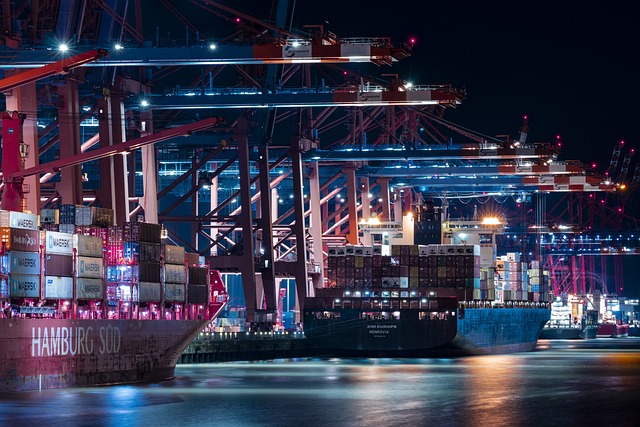In today’s fast-paced world, logistics and delivery services are evolving rapidly. With the integration of artificial intelligence (AI), businesses can revolutionize their supply chain management, enhance delivery route planning, and achieve last-mile delivery optimization. From AI-powered logistics optimization to predictive analytics in logistics, this technology plays a pivotal role in streamlining processes and reducing costs. In this post, we’ll explore how AI can be leveraged to optimize logistics and delivery services effectively.
AI in Supply Chain Management
AI has transformed supply chain management by automating processes and providing real-time data insights.
Improved Demand Forecasting
One of the primary benefits of AI in supply chain management is its ability to improve demand forecasting. By analyzing historical data, market trends, and external factors, AI systems can predict demand more accurately than traditional methods. This ensures that businesses can manage inventory efficiently, minimizing overstocking or understocking issues.
Furthermore, AI-based tools can adapt to sudden market changes, such as seasonal demands or unforeseen disruptions. This adaptability helps businesses stay competitive in a dynamic market.
Enhanced Inventory Management
Inventory management is a critical aspect of the supply chain, and AI excels at optimizing this process. AI-powered solutions track inventory levels in real-time and automate replenishment processes.
These systems use predictive analytics to determine optimal stock levels based on demand patterns, supplier performance, and delivery timelines. By reducing manual intervention, businesses save time and reduce human errors in managing inventory.
AI for Delivery Route Planning
Efficient route planning is essential for timely deliveries and cost savings. AI-driven systems ensure smarter routing by leveraging advanced algorithms.
Real-Time Traffic Analysis
AI systems use real-time traffic data to identify the fastest routes for delivery vehicles. These systems analyze congestion patterns, road closures, and weather conditions to recommend the most efficient paths.
By reducing delays and fuel consumption, businesses can enhance customer satisfaction while minimizing operational costs. Additionally, AI-powered tools continuously learn from previous delivery experiences, further refining route planning over time.
Dynamic Route Optimization
Dynamic route optimization takes efficiency a step further by adapting routes in real-time. For instance, if a traffic jam occurs during a delivery, AI tools can immediately suggest alternative routes.
This flexibility is particularly beneficial for last-mile delivery, where challenges like narrow streets or unexpected obstacles can cause delays. With AI, businesses can ensure seamless deliveries even in complex urban environments.
AI for Last-Mile Delivery Optimization
The last mile of delivery is often the most challenging and expensive part of the logistics process. AI provides innovative solutions to address these issues.
Autonomous Delivery Vehicles
AI enables the development of autonomous delivery vehicles, such as drones and robots. These technologies reduce dependence on human drivers, lower labor costs, and improve delivery efficiency.
Autonomous vehicles equipped with AI can navigate through diverse terrains and deliver packages with precision. They are particularly useful for rural or hard-to-reach areas where traditional delivery methods may be inefficient.
Customer Communication
AI-driven chatbots and notification systems enhance communication between businesses and customers. Customers receive real-time updates about their delivery status, including estimated arrival times and any potential delays.
Such transparency builds trust and improves the overall customer experience. Additionally, businesses can collect feedback using AI tools to continuously refine their delivery services.
Conclusion
AI is revolutionizing logistics and delivery services, offering unparalleled efficiency and cost savings. From supply chain management to last-mile delivery optimization, AI-powered solutions empower businesses to stay competitive in a demanding market. By leveraging tools like real-time traffic analysis, dynamic route optimization, and autonomous delivery vehicles, companies can enhance their logistics operations significantly.
Incorporating AI into logistics isn’t just a trend—it’s a necessity for businesses looking to thrive in the modern economy. Start exploring these technologies today to transform your logistics and delivery processes.






